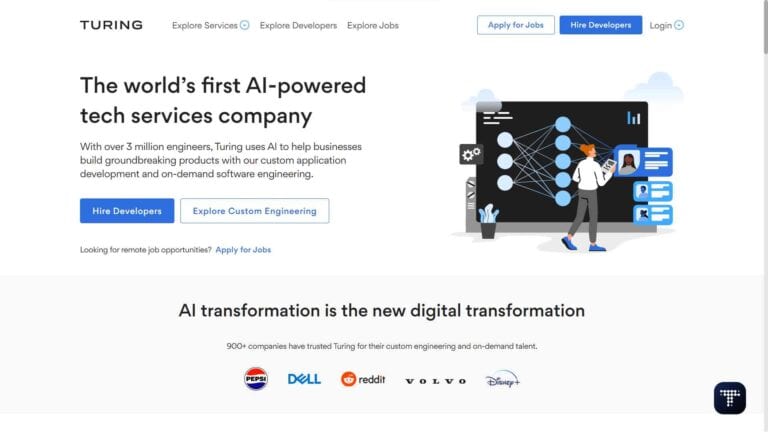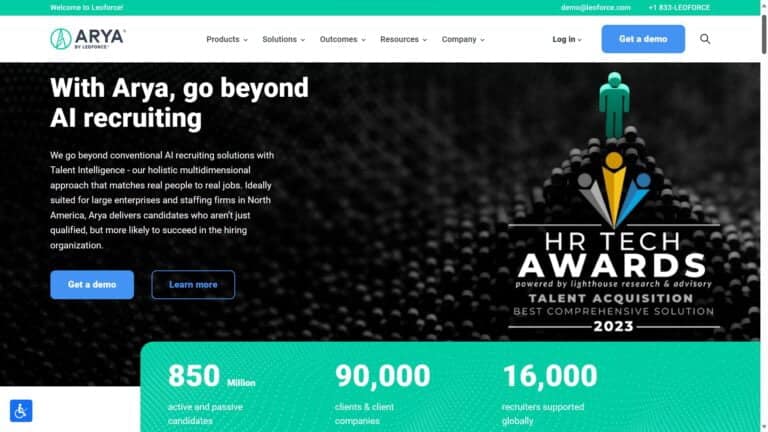In the fast-paced world of job hunting, where the competition is fierce and opportunities seem elusive, it’s not uncommon for applicants to feel the need to lie on their CV, resume, cover letter or job application to stand out. Having worked closely with numerous clients navigating the turbulent waters of career development, I’ve witnessed firsthand the aftermath individuals faced when caught lying on their CVs. The consequences of lying on a CV are often catastrophic.
Picture this: a job seeker secures a job based on carefully crafted falsehoods, only to be terminated when the truth inevitably surfaces. It’s a scenario that not only shatters the illusion of a promising career but also casts a shadow on future job prospects.
As a seasoned career coach, my role extends beyond just guiding clients through the intricacies of the job market. I’ve become a confidant for those who’ve faced the consequences of weaving untruths into their professional narratives. In this article, I’ll share three ways my clients were affected by the repercussions of lying on their CV, resume, cover letter or job application. I will also explore alternative strategies for you to stand out authentically in a competitive job market. Get ready to explore the real-world consequences of lying on a CV.
Consequences of Lying on a CV
Termination
Confronting the aftermath of a dishonest job application, the most immediate repercussion for my clients was termination. Picture this disheartening scenario: armed with a polished but misleading CV, an individual lands the coveted position only to face the unravelling of their carefully constructed facade. This isn’t merely a professional setback; it’s a seismic disruption reverberating through their current employment, potentially causing irreparable damage to their standing within the organisation. The shockwaves, however, extend beyond the present moment, casting a long shadow over future job opportunities.
The allure of embellishing qualifications, employment history, work experience or putting other false information on a CV comes with the risk of immediate termination. This is a lesson etched into the professional journeys of those who’ve crossed the line between embellishment and outright CV fraud.
Damage to Reputation
Beyond the immediate threat of termination, another consequence is irreparable damage to one’s professional reputation. In the professional world, where honesty and integrity are not just valued but considered foundational, individuals face severe and lasting repercussions if they are caught lying on a CV.
Employers, peers, and industry professionals place immense importance on trust, and the revelation of dishonesty can shatter that trust, leading to negative perceptions that linger throughout a career. The fallout isn’t limited to the current role; it extends to future career trajectories, making each step forward a more challenging uphill climb.
As a career coach, I’ve witnessed individuals grappling with the fallout of damaged reputations. Be warned that the consequences of lying on a CV usually extend far beyond a single job opportunity.
Legal Consequences of Lying on a CV
Depending on the severity of the offence, some people even face the legal consequences of lying on a CV. In cases where false representation on a CV, resume or cover letter involves the provision of false references, qualifications or credentials to a prospective employer, job applicants may face legal action from their new employer. Such fabrications cannot be overstated in their seriousness, as they are a criminal offence and jeopardise professional credibility.
In more severe cases, lying on your CV could lead to criminal charges, a criminal record or even a prison sentence. In fact, according to the Fraud Act 2006, providing false information on a CV or job application can lead to a maximum jail sentence of 10 years.
It is important to note that actual instances of a 10-year jail term for falsifying a CV are infrequent. However, in a notable case from 2010, Rhiannon Mackay received a 6-month jail sentence after misrepresenting her qualifications on her CV, ultimately securing a position as a capital projects administrator in the NHS. It’s worth mentioning that her case specifically involved the fabrication of past employment history and references.
In the United States, you could get up to five years in prison for resume fraud under federal fraud charges. Each state also has its specific laws regarding resume fraud.
In the next section, you will see the true story of Jon Andrewes, who faced serious legal consequences for lying on his CV.
Case Study: Jon Andrewes – Consequences of Lying on a CV
The story of Jon Andrewes stands as a stark example of the severe consequences that accompany dishonesty in professional pursuits. Mr Andrewes, a 63-year-old from Totnes, Devon, undertook a fraudulent journey resulting in a two-year jail term.
Jon Andrewes falsely claimed to be a doctor, donning the title and embellishing his CV with fake PhDs to secure chairmanship roles at two NHS trusts and a hospice while being a professional builder. The audacious deception allowed him to enjoy six-figure taxpayer-funded salaries, amassing £1 million.
Despite having only a HE certificate in social work and a PGCE in teaching, Jon Andrewes manipulated his way into prestigious positions within the NHS. His web of lies included false claims of degrees from three universities, painting a picture of a highly qualified individual. In reality, Mr Andrewes spent most of his career in roles such as probation officer, customs officer, and youth worker.
The unravelling of Jon Andrewes’ deception began in 2016 when thorough interviews exposed the fabricated credentials. Subsequently, in 2017, he admitted charges related to making false representations for personal gain in his roles at Torbay NHS Care Trust, Royal Cornwall Hospital Trust, and St Margaret’s Hospice.
The legal proceedings didn’t conclude with his conviction. A confiscation hearing followed, leading to an initial order requiring Andrewes to hand over £96,737.24—the determined “recoverable amount” of money available to him. However, Mr Andrewes successfully appealed against this confiscation order, leading to a subsequent challenge by the Crown.
The Supreme Court stepped in, unanimously allowing the appeal by the Crown. The court’s ruling overturned Jon Andrewes’ successful appeal against the confiscation order, emphasising the disproportionate nature of such deception in a position of trust.
This case study serves as a cautionary tale, emphasising the importance of transparency, integrity, and due diligence in the professional sphere. As individuals navigate their careers, the story of Jon Andrewes stands as a stark reminder that the pursuit of success should always be grounded in truth and ethical conduct.
In Mr Andrewes’ case, he got away with his fraud for a while due to the NHS’s failure to conduct a rigorous background check. However, his deception eventually caught up with him. Many organisations carry out extensive background checks, so you will likely be caught if you carry out CV fraud. Be warned that even if you are not caught initially, it is likely that you eventually will be detected and could receive a criminal record, have to pay back your salary or even receive a prison sentence for your lie.
Alternatives to Lying on a CV
Now that we have established many consequences of lying on a CV, we will look at alternatives to lying on a CV. We will look at five alternatives that not only set you apart but also do so authentically and ethically.

Focus on Transferable Skills
One powerful strategy for you to consider is to shift your focus from embellishment to highlighting your transferable skills. Employers value versatility, adaptability, and quick learning, so showcasing these skills positions you as a valuable asset and provide a genuine representation of your capabilities. By emphasising the broader skill set you bring to the table, you can establish yourself as an adaptable professional capable of meeting the evolving demands of the job.
Show Enthusiasm
Another credible alternative is expressing genuine enthusiasm for the role. Employers often seek individuals whose passion for the role and company aligns with the organisation’s values. When giving interview tips to my clients, I often say that a heartfelt expression of interest can resonate far more profoundly than a laundry list of credentials. This applies to cover letters and personal statements too.
Highlighting your genuine eagerness to contribute and willingness to learn can attract employers, showing a valuable quality that goes beyond what your CV or resume can convey. A pro tip is asking high-quality questions at an interview because, if done correctly, this can demonstrate your enthusiasm for the role.
Professional Development
Investing in professional development is a proactive approach to enhancing your skill set and becoming a stronger candidate. Certifications and continuous learning show dedication to personal growth and commitment to staying abreast of industry trends. The job market values skills as much as qualifications. This strategy enhances your marketability and provides tangible evidence of your investment in your professional journey.
Networking
Networking, often underestimated, can be your key to progression or securing a role in the hidden job market. Beyond the traditional job application process, exploring opportunities through industry connections opens doors that may remain closed otherwise. Building relationships within the professional community provides insights into job openings with potential employers and facilitates referrals and recommendations, adding a personal touch to the job application process.
Be Honest and Transparent
Lastly, and most crucially, is the power of honesty and transparency. Instead of succumbing to the temptation of lying on your CV, you can set yourself apart by addressing your qualifications truthfully in the application. The cover letter becomes a powerful tool to explain how existing skills and experiences uniquely position you to contribute to the role, even without specific qualifications. This upfront and transparent approach builds trust and distinguishes candidates as individuals of integrity in a competitive job market.
The Long-Term Benefits of Honesty
Embarking on a career journey marked by honesty, authenticity, and a steadfast commitment to personal growth yields immediate advantages and sets the foundation for enduring success. The intrinsic value of these qualities extends beyond mere job acquisition; it shapes the very trajectory of a fulfilling career. Honesty builds trust, and authenticity cultivates genuine connections, establishing a professional environment where individuals contribute as integral members of a collaborative community.
Committing to your personal growth helps you navigate the changing demands of your chosen field. In a time where adaptability is essential, being willing to learn and evolve sets you apart. This proactive approach enhances your skill set and makes you valuable to organisations prioritising continuous improvement.
Employers recognise and appreciate the authenticity and commitment that genuine candidates bring to the table. A candidate who embodies honesty and a real passion for their work stands out in a sea of CVs.
Employers seek individuals with a sense of purpose, aligned values, and a commitment to contributing meaningfully to the organisation’s mission. This appreciation extends beyond the initial hiring process, influencing career progression and creating a professional narrative marked by credibility and respect.
Conclusion
As a seasoned career coach, I have seen firsthand the transformative power of cultivating these authentic alternatives and their linked qualities in my clients. Beyond the immediate challenges of job acquisition, the long-term benefits of an honest and growth-oriented approach resonate throughout a successful and fulfilling career. It’s a testament to the enduring value of integrity in a job market that rewards not just qualifications but the character and commitment of those who navigate it.
In conclusion, the consequences of lying on a CV are not just professional pitfalls but potential landmines that can detonate a promising career. From the immediate impact of termination to the lasting shadows cast on future job prospects, the aftermath is a stark reminder of the perils of sacrificing truth for expedient gain.
However, as we’ve explored the repercussions, I have also illuminated a path forward—a roadmap that veers away from embellishment and towards authenticity and honesty. The alternatives I have shared offer a foundation for career advancement beyond the superficial allure of fabricated qualifications.
As a career coach, I’ve witnessed the resilience of individuals who chose the path of truth despite the allure of shortcuts. Their journeys, marked by a commitment to personal growth and a genuine passion for their craft, have demonstrated the value of honesty, which has led them to success.
So, as you navigate the intricacies of your career, remember this: the road to success is not paved with a lie but built on the solid foundation of integrity. Being truthful may not promise immediate gratification but guarantees a sustainable and fulfilling career trajectory. Let the truth guide your professional narrative, and watch as it becomes the compass steering you toward a career marked by genuine success and lasting impact.
Sources:
Ex Royal Cornwall Hospitals Trust boss Jon Andrewes, who faked qualifications, must pay back £96,737 – Cornwall Live.







